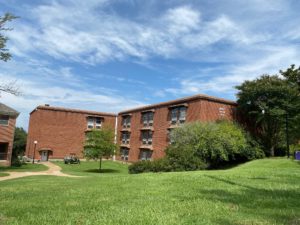by Alex Melnick
arts & life editor
Felipe Sousa Rodriguez has an impressive resume. A co-director of Get Equal, he also marched on the Trail of Dreams in 2010 from Miami all the way to Washington, D.C., on foot to protest the treatment of undocumented people in this country. His recent visit to speak at Millsaps also coincided with a crucial moment in our own history of civil rights, in context to SB 2681 (also known as the Religious Freedom Act), which could have allowed discrimination on the basis of freedom of religion—e.g., excluding gay people from eating in your restaurant or purchasing your services because your religion doesn’t support homosexuality. Many Millsaps students and faculty vocally and powerfully opposed the bill, which ended up passing with the discriminatory language changed or removed.
I met Rodriguez outside the Kava House on a glorious day to briefly discuss his perspective on Mississippi and his activist work.

The Purple & White: Hey Felipe! I guess could we start by asking you why you’re visiting Millsaps?
Felipe Sousa Rodriguez: Well, I’m the co-director of Get Equal, a national LBTQ organization. So I came to talk about the intersection of LGBTQ rights and immigrant rights, but I’m also here to really understand the issues Mississippians are facing right now.
P&W: Awesome! Are you enjoying Jackson so far?
FSR: Yes! It’s a great city! Also, the weather here is a lot better than the weather in D.C.
P&W: How did you start working for Get Equal?
FSR: I started working there two years ago, but prior to that I was a volunteer. I worked with

them first on a national training in Memphis, Tenn., where a bunch of their organizers came together to learn skills. I helped them organize the training. So that’s how I got started. It was also a place where they really care about the lived experiences of LGBTQ people, which means they worked on the different intersections of the issues. I always care about the intersection of LGBTQ rights and immigrant rights because those are my identities.
P&W: Can you expand more on that?
FSR: Sure. Well, I am right now still an undocumented immigrant. I identify as a queer person. This means both these issues impact my life. There are about 267,000 LGBTQ undocumented people in the United States, so that’s a lot of people. Some of the issues that LGBTQ immigrants face are indefinite solitary confinement in detention centers, trying to get papers to citizenship, living in fear of deportation while dealing with the strict laws of asylum for the United States.
(A note for our readers: Asylum essentially means one’s country has ceased to be a safe place for them based on their identity, and thus they must leave to live in another or face violence or persecution. LGBTQ people are one of the most prominent examples of this.)
P&W: Can you expand more on what Get Equal does; perhaps an overview of the last two years?
FSR: Get Equal was founded in 2010. We worked on the repeal of Don’t Ask Don’t Tell, and also we pushed for the end of discrimination in employment at a national level. We’ve been doing several things, but we are essentially a grass roots organization that believes in direct action.
P&W: What would you like to see happen in Mississippi?
FSR: Well, I would love to see a Get Equal chapter become really strong here, and also for folks to really understand there is an opportunity to push back at a lot of the really anti-LGBTQ laws and anti-people of color laws that have been passing recently. You know, wherever there is oppression there is also opportunity to push back. That’s what I would like to see.
P&W: What message would you have for Millsaps?
FSR: I would love for students to get involved in a Get Equal chapter. Sara Del Castillo is the point of contact for that. If you want to know more, contact her! Or me: felipe@getequal.org
